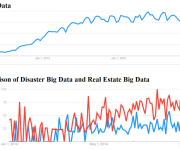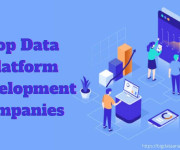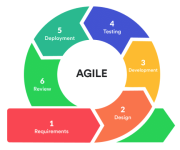Computational Data Science vs. Data Science: What’s the Real Difference?
In the ever-expanding universe of data, the term “Data Science” has become a familiar star, representing the practice of extracting insights and knowledge from data. However, as the scale and complexity of data have grown to astronomical proportions, a more specialized and powerful field has emerged: Computational Data Science. While these two terms sound similar and are often used interchangeably, they represent different, albeit related, disciplines. Understanding the distinction is key to navigating the modern data landscape, whether you’re a business leader or an aspiring data professional.
Data Science: The Art of Asking and Answering Questions
Think of Data Science as the art and science of asking the right questions and finding answers within data. It’s a broad, interdisciplinary field that combines statistics, business acumen, and programming to analyze and interpret complex datasets. A data scientist is a storyteller, a detective, and a strategist all in one.
Their primary focus is on:
- Analysis and Interpretation: Using statistical methods and machine learning models to uncover trends, patterns, and correlations.
- Business Insight: Translating findings into actionable insights that can drive business decisions.
- Communication: Creating visualizations, dashboards, and reports to communicate complex findings to non-technical stakeholders.
A data scientist might answer questions like, “Which customer segment is most likely to churn?” or “What was the most effective marketing channel last quarter?” They are experts at using existing tools and models to extract value from data that has already been collected.
Computational Data Science: The Engineering of Solving Problems at Scale
If data science is about finding the answers, Computational Data Science is about building the powerful engines required to find those answers, especially when the problems are massive, complex, and computationally intensive. It sits at the intersection of computer science, applied mathematics, and data science, with a heavy emphasis on high-performance computing and algorithm design.
A computational data scientist is an engineer and an architect. They don’t just use the tools; they often build and optimize them. Their focus is on:
- Scalability and Performance: Designing systems and algorithms that can handle massive datasets (terabytes or petabytes) efficiently.
- High-Performance Computing (HPC): Leveraging supercomputers, cloud clusters, and GPUs to run complex simulations or train enormous models.
- Algorithm Optimization: Developing new algorithms or refining existing ones to make them faster, more accurate, and less resource-intensive.
- Simulation and Modeling: Creating complex models to simulate real-world systems, such as climate change, financial markets, or genomic interactions.
A computational data scientist might tackle challenges like, “How can we build a real-time fraud detection system that processes millions of transactions per second?” or “How can we simulate protein folding to accelerate drug discovery?”
A Simple Analogy: The Chef and the Kitchen Designer
- A Data Scientist is like a master chef. They take high-quality ingredients (data) and use their expertise and tools (statistical models, programming libraries) to create a fantastic meal (actionable insights).
- A Computational Data Scientist is like the engineer who designs the state-of-the-art professional kitchen. They’re concerned with the efficiency of the ovens (algorithms), the workflow of the kitchen (data pipelines), and ensuring the entire system can handle the demands of a Michelin-star restaurant (scale and performance).
The chef needs a well-designed kitchen to excel, and the kitchen designer’s work is only valuable if it helps the chef create great food. The two roles are distinct but deeply codependent.
The Role of Advanced Education
The depth and rigor required for computational data science often necessitate a strong academic foundation in computer science and advanced mathematics. For those aspiring to work on the cutting edge of this field, advanced programs are invaluable. For instance, an IISc data science course online (referring to programs from leading institutions like the Indian Institute of Science) would provide the deep theoretical and computational knowledge required, focusing on the fundamental principles that drive high-performance data analysis and modeling.
Which Path Is Right for You?
Choosing between these fields depends on your interests and skills:
- Choose Data Science if: You are passionate about storytelling with data, love uncovering hidden patterns, and enjoy bridging the gap between technical analysis and business strategy.
- Choose Computational Data Science if: You are fascinated by building efficient systems, love optimizing code and algorithms, and are excited by the challenge of working with massive-scale computing and complex simulations.
For many, the journey into the data world begins with a broad foundation. Pursuing a data science certification course is an excellent way to master the core principles of data analysis, machine learning, and programming. From there, you can choose to specialize, either deepening your analytical and business skills as a data scientist or diving into the high-performance computing world of a computational data scientist.
Conclusion: Two Sides of the Same Innovative Coin
Computational data science isn’t a replacement for data science; it’s a powerful extension of it, born out of the necessity to handle the ever-increasing scale of our digital world. Both fields are crucial for driving innovation and solving some of the world’s most complex problems. Whether you’re an analyst uncovering insights or an engineer building the systems to make it possible, you are part of the same exciting mission: to turn raw data into a better future.


























